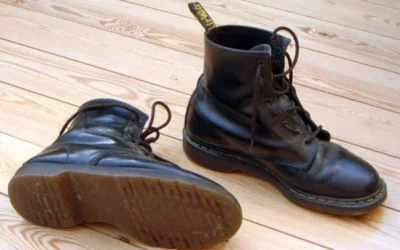It seemed so obvious to me that “a couple of questions” referred to two questions that I never stopped to question it. In fact, I would even correct myself on this point of usage. If, for example, I typed in an email “I have a couple of questions,” then went on to list those questions and discovered that actually I had three questions, I would go back and change “a couple of” to “a few.” And I feel sure that I changed this construction in other people’s writing too.
Then came last semester’s revelation. While discussing language peeves in my introductory English linguistics course, one student, Katelyn Carroll, volunteered that it drove her nuts when people used the phrase a couple (of) to refer to more than two things. I heartily concurred, along with a few additional students, but a good number of other students in the course felt we were being persnickety — and, perhaps, were just flat-out wrong.
Katelyn ended up doing research on a couple (of) as a quantifier for the class usage guide, and it has changed my copy-editing practices. In a very small survey of undergraduates at the University of Michigan, she discovered that only one third of them believed a couple (of) could refer to only two items, and some of them believed that it always had to be more than two (i.e., equivalent to several, which is typically seen as more than two). Almost all the respondents agreed — as do I — that a couple (of) is informal, whatever it means.
Dictionaries indicate that I am not on solid footing with my restrictive definition. Merriam-Webster online provides the definition “an indefinite small number: FEW” for the word couple, with the example “a couple of days ago.” The online Webster’s New World concurs. The definition in the American Heritage Dictionary of the English Language online supplies a very similar definition: “Informal A few; several: a couple of days.” American Heritage defines several as more than two or three (but less than many); few is simply a small number. In any case, both dictionaries reflect much more flexibility than I was exhibiting in how many things are encompassed by a couple of things.
I continue to contemplate whether it matters what kinds of things we are discussing. In talking about time, when we are often less precise, it seems more obvious to me that the phrase a couple of minutes is only approximate and could be more than two; but then again, I think we all understand two minutes is also approximate in “I’ll be there in two minutes” (it could be up to, say, five minutes) — and two still refers to two there. When I am relaying how many questions I have, especially in writing, it is a countable list.
But that is just me rationalizing why I will probably continue to change a couple of to a few in my emails if I have more than two questions. That said, I promise not to change the construction in others’ informal writing. I stand corrected on this point of usage. And I love that. As I have written about before, I think it is important for linguists to acknowledge that we also have language peeves and to be thoughtful about how well founded they are. Each one of us is allowed to have preferences for how we choose to use the language, but we should be careful about when and why we are imposing those preferences on others.
This blog was originally posted on The Chronicle




